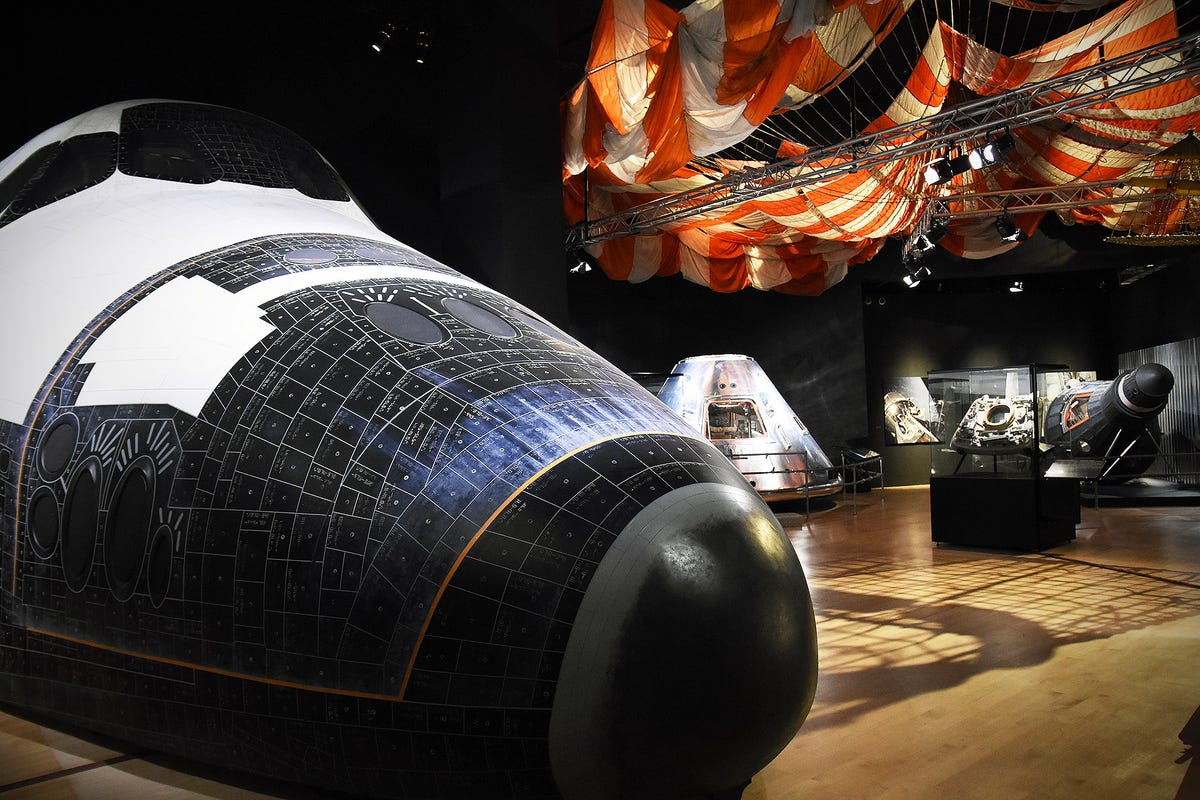'NASA: A Human Adventure' takes you on a space odyssey
An exhibit at Singapore's ArtScience Museum features an incredible journey.

If you're into all things outer space, you really don't want to miss out on the "NASA: A Human Adventure" that's taking place from November 19 to March 19, 2017 at Singapore's ArtScience Musuem. Filled with over 200 artifacts on display, with some having left the planet, the exhibition takes you on a journey to the moon and back. Tickets cost $20 (about $14, £11 and AU$19) and it's worth it, as you get to see a full scale construction of the front section of NASA's Space Shuttle Atlantis.
The exhibit showcases the rush to space, between the US and the then USSR as both superpowers raced to make history.
Before you step into the exhibition proper, you get a glimpse of a sci-fi visions of space exploration, from celebrated writers like Jules Verne.
Propaganda played an important bit in the space race in the 1950s, as both countries did their best to get their citizens excited.
In 1961, US President John F Kennedy gave a speech to Congress about putting a man on the moon, leading to the Apollo missions. Unfortunately, Kennedy never got to see the actual landing that took place in 1969, as he was assassinated two and a half years after the speech.
Parts of a German V-2 ballistic missile, which was deployed during WW2. These fragments had traveled to space and back.
Man was not the first into space, mice led the way as scientists used these devices to study the forces and stress of space flight before the first manned missions in 1961.
The Jupiter nose cone shown here featured an ablative ceramic shield, allowing it to survive re-entry into the Earth's atmosphere without burning up. Monkeys and mice were sent into space inside these nose cones.
The Titan I Rocket Engine LR-87 is part of a two-stage intercontinental ballistic missile. They were phased out in 1965 in favor of the Titan II.
As you can see, duct tape played an important part in rocket science.
The rockets looked like a mess of parts, but the tubes were important in cooling the engine to keep it from melting while working.
There's also a 1:10 scale replica of the Saturn V, which was made to support the Apollo program. The rocket was used to launch Skylab, the first American space station, as well as send over 24 humans to the moon. NASA spent $6.5 billion (or about $47 billion present day) from 1964 to 1973 to develop and launch these expensive rockets into space.
Here's a closer look at how and where the Apollo modules were located and how they split up for the moon landing.
America was not the only country to check out the moon. The Soviet Union launched remote-controlled lunar rovers, the Lunokhod 1 and 2 (pictured). The rover weighed 840kg and was designed to assess ambient light levels, take pictures of the moon's surface, observe solar x-rays among other things.
Doing your business in space can be tricky, hence the Apollo Defecation Collection Device (left) and the Space Shuttle Maximum Absorbency Garment (MAG), given to each crew member and used during lift-off and re-entry. There was also a spare if a second re-entry attempt was needed.
The parachute is an actual one used during re-entry, if you look carefully, you can see some burn marks from the re-entry process.
Seen here is a replica of Project Gemini, NASA's second human spaceflight program used in 1965. Extra-vehicular activities (EVA) were performed in space as well and helped NASA figure out space travel techniques.
Here's an inside look at the cockpit of Project Gemini.
Like a plane, the Space Shuttle's cockpit has plenty of buttons and dials, and you'd need a lot of training to fly this spaceship.
If you're feeling adventurous, you can also hop on board this gravity simulator, which takes you up to 2Gs as you experience a launch and re-entry. Not recommended for the faint of heart, and you may get nauseous from the experience. The gravity simulator will cost up to an extra $6 per ride depending on the day of the week you're riding it.

